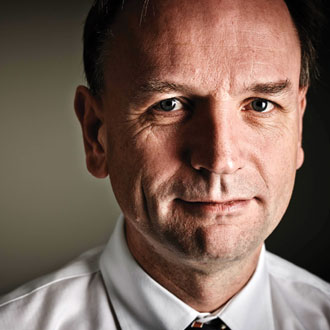Exclusive NHS England will drop the scheme to pay GPs £55 for each additional patient on their list diagnosed with dementia from April, NHS England’s chief executive has told Pulse.
Speaking exclusively to Pulse, Mr Simon Stevens called the scheme a ‘one-time catch up opportunity’ and said the situation was ‘unusual’, when asked if the pay-per-diagnosis scheme would be renewed when it expires in April.
The scheme, which pays practices £55 for each additional dementia diagnosis if they show a net increase on the practice register from October to the end of March 2015, is an attempt by the Government to hit targets on dementia diagnoses rates in 2015, but has been widely condemned by GPs for being unethical.
It comes as last week NHS England extended the deadline for practices to sign up to the scheme to this Friday to give GPs and area teams more time to evaluate it. But Mr Stevens told Pulse there were no plans to extend the deal beyond March.
He said: ‘This is just through March so it’s a one-time catch up opportunity for practices who want to take it… This particular one-time support is an unusual situation.’
Related articles
Simon Stevens: ‘We need to do what was previously forbidden’
Analysis: GPs split over dementia diagnosis scheme
Case study: Why have we signed up for a dementia scheme we don’t believe in?
However, in the same interview, he declined to admit having any regrets about rolling out the scheme, which has seen groups of GPs campaigning for it to be scrapped.
He said: ‘I think it’s too early for hindsight. We need to look at the dementia diagnosis rate through the year before we do that. It is not driven by patient preference, but by different levels of focus on this topic. ‘
‘If people don’t want to take the payment that’s entirely legitimate. The underlying point though is you have a lot of variation in your chance as a patient with early stage dementia in having that identified and getting the support, whether that is medicine or a care plan. There are quite a lot of people who are not having the opportunity to get that early information and support. So there’s a whole range of things being done to address that, and this is only a small part.’
Dr Richard Vautrey, deputy chair of the GPC, said: ‘It is good to see that NHS England have finally listened to GPs and the BMA who have raised concerns about the Government directly linking payments to specific targets.
‘Decisions about an individual’s care should always be based on clinical need, not financial imperatives, and while the diagnosis of dementia is important it should not be done in a way that could seriously undermines the doctor/patient relationship.
‘Rather than wasting money on short-term, pre-election targets, it would be far more beneficial to invest properly in GP services so that GPs can provide holistic care or to provide proper resource to meet the real needs that patients and their carers tell us are crucial, including timely appointments at memory clinics and real support in the community.’
The scheme had been widely criticised by GPs, who believed that rewarding doctors for making diagnoses could harm the patient-doctor relationship.
A group of more than 50 GPs, consultants and patients, led by Guildford GP and leading campaigner on over-diagnosis Dr Martin Brunet, wrote an open letter to NHS England chief executive Simon Stevens and dementia czar Professor Alistair Burns, calling for the policy to be withdrawn.
They wrote that the direct payment for diagnosis undermines the ‘basis of trust inherent in the doctor-patient relationship’ and cite the public’s reaction as evidence of the concerns around the ethics of such payment.
They added: ‘The reaction of the general public to the story is a demonstration of the widespread concern that the policy is unethical, and we ask for it to be withdrawn without delay.’
Pulse recently revealed that more than 40% of GPs had signed up for the the Dementia Identification Scheme, or intended to do so before the original deadline of 17 November.
Other funding streams aimed at diagnosing and treating dementia patients include the dementia DES which has been in place since April 2013 and which has been rolled over fpr 2015/16.
Pulse October survey
Take our July 2025 survey to potentially win £1.000 worth of tokens














